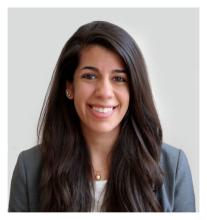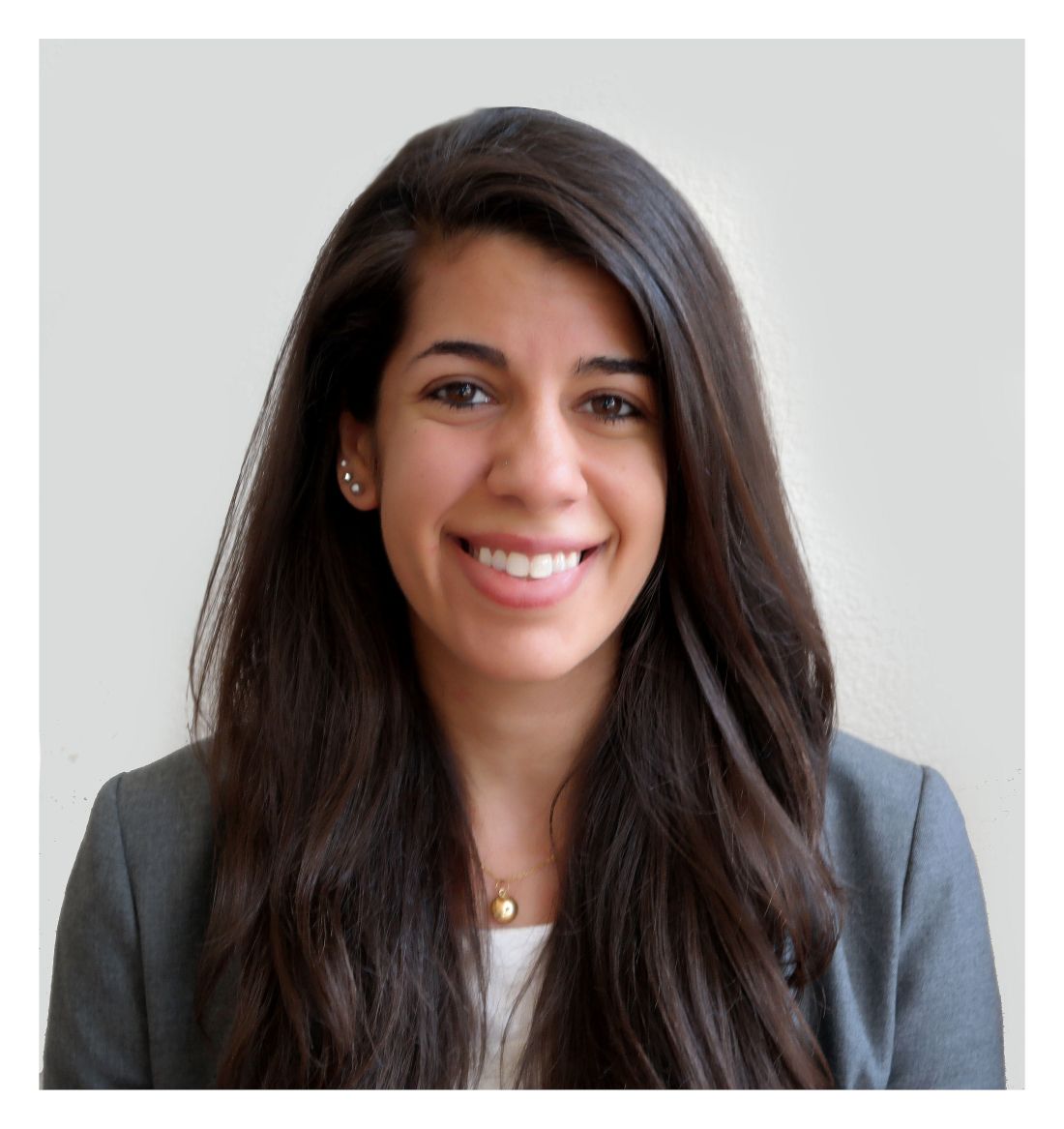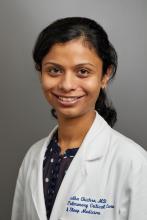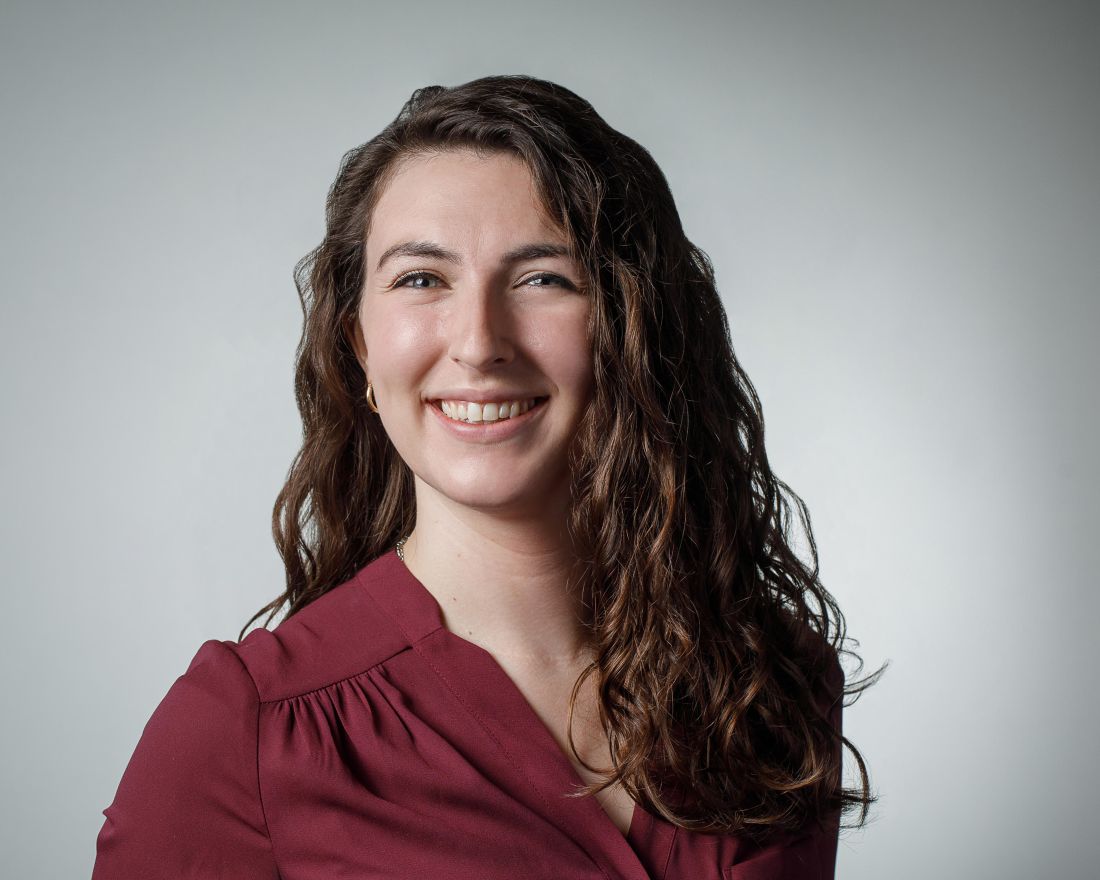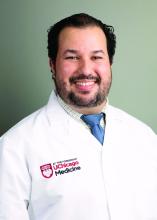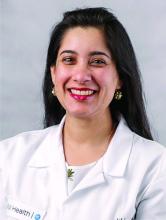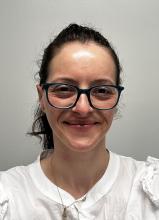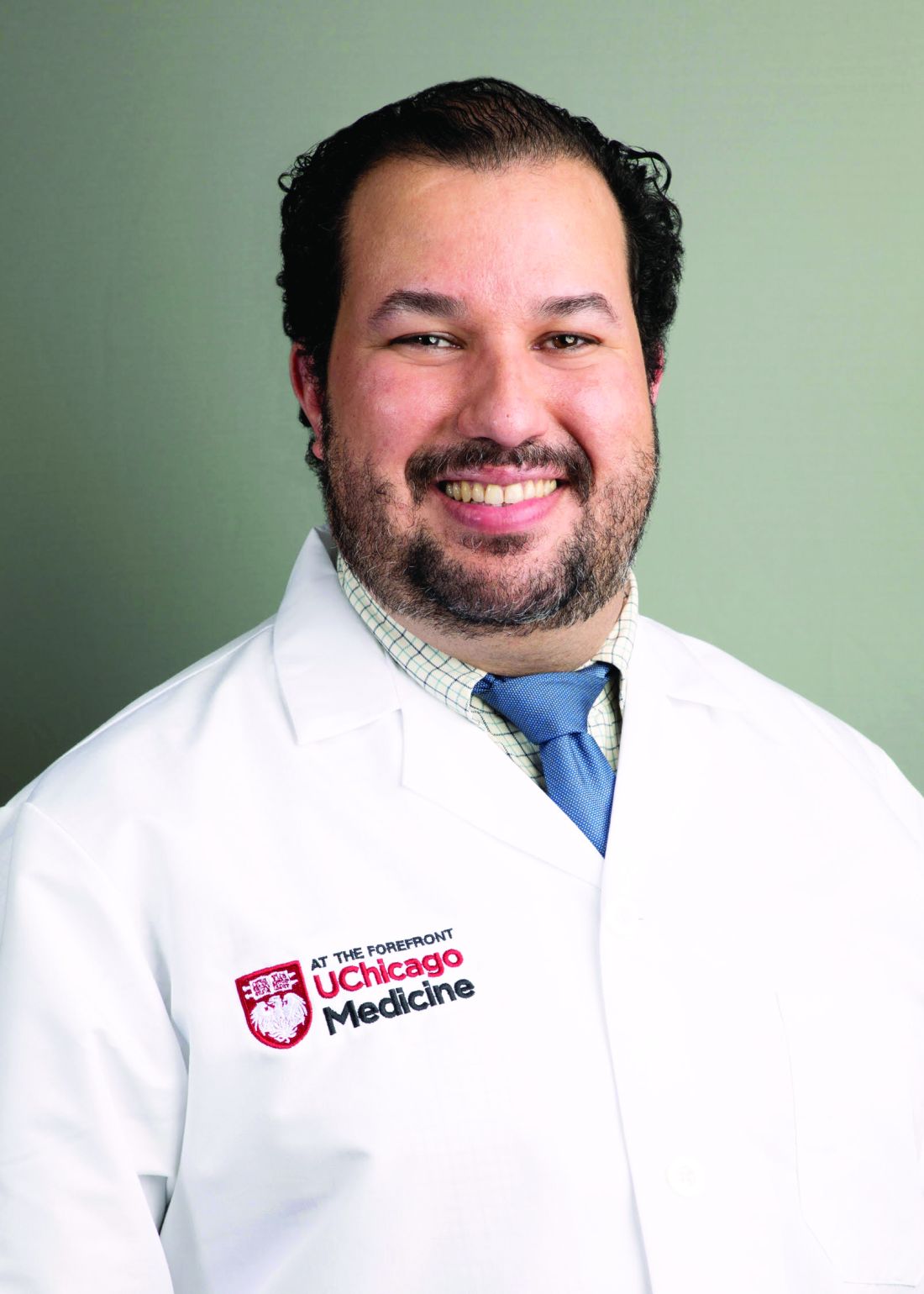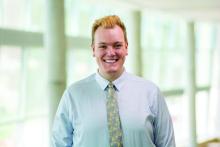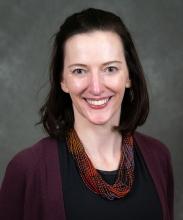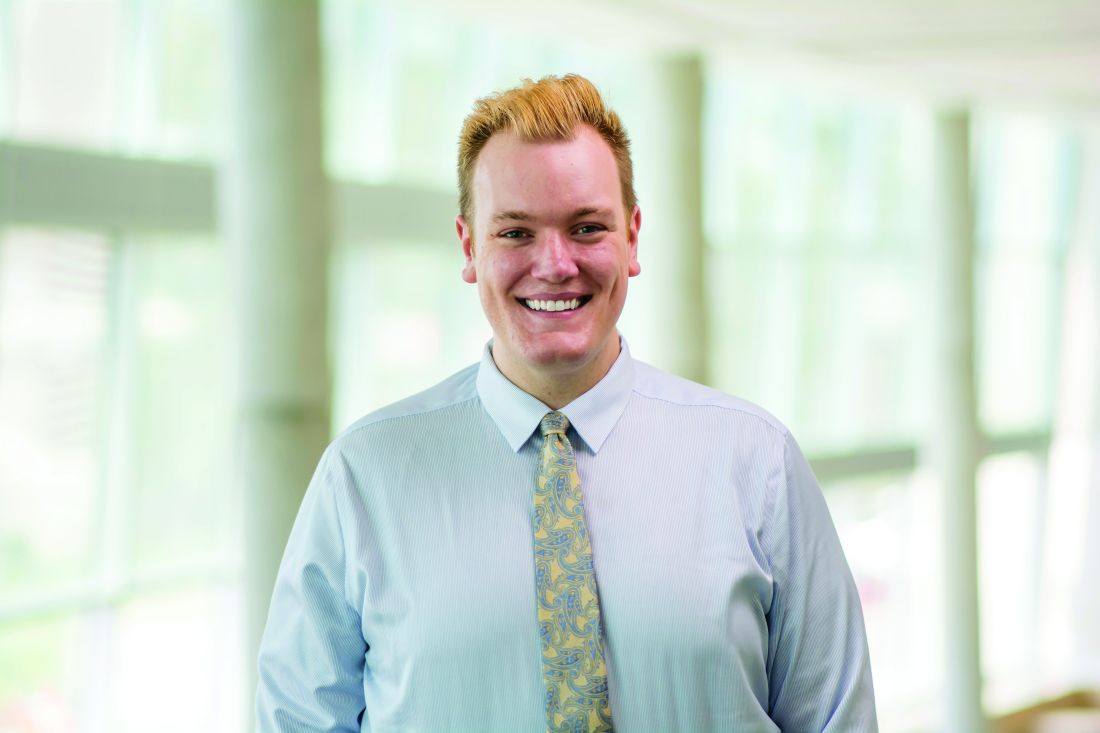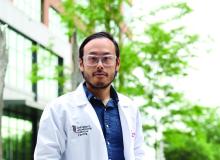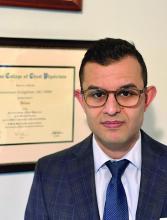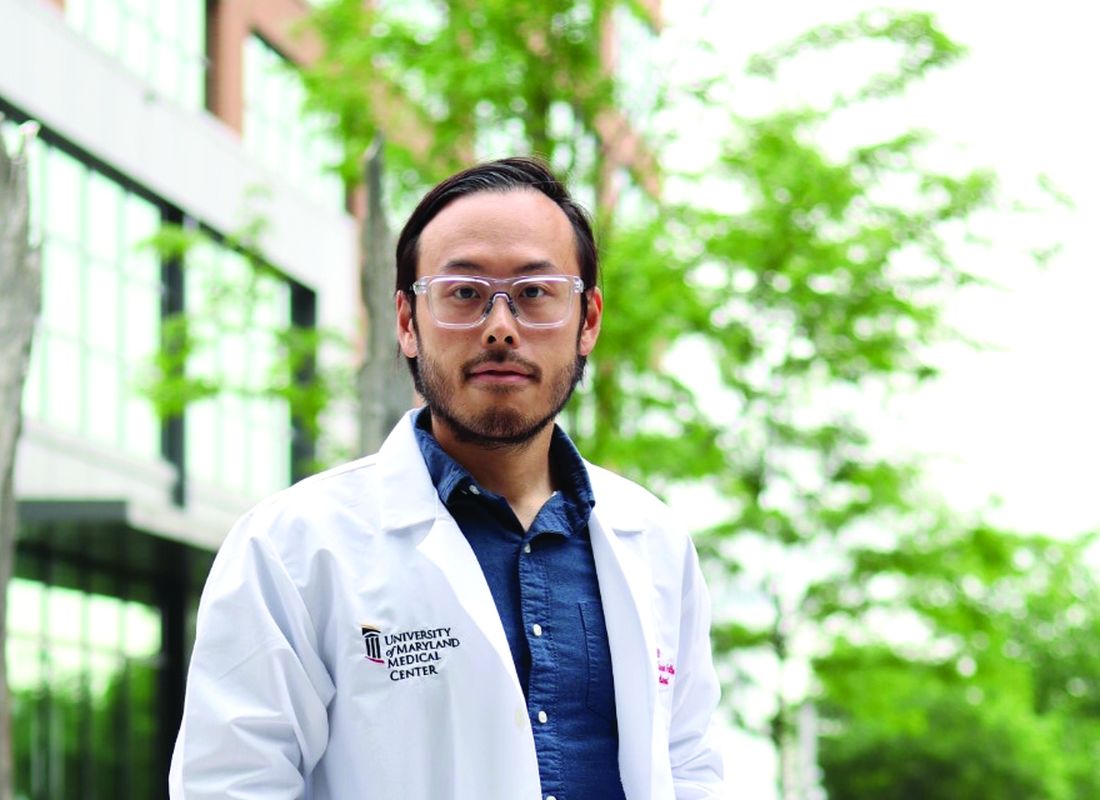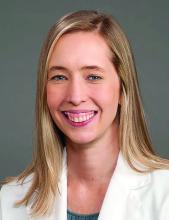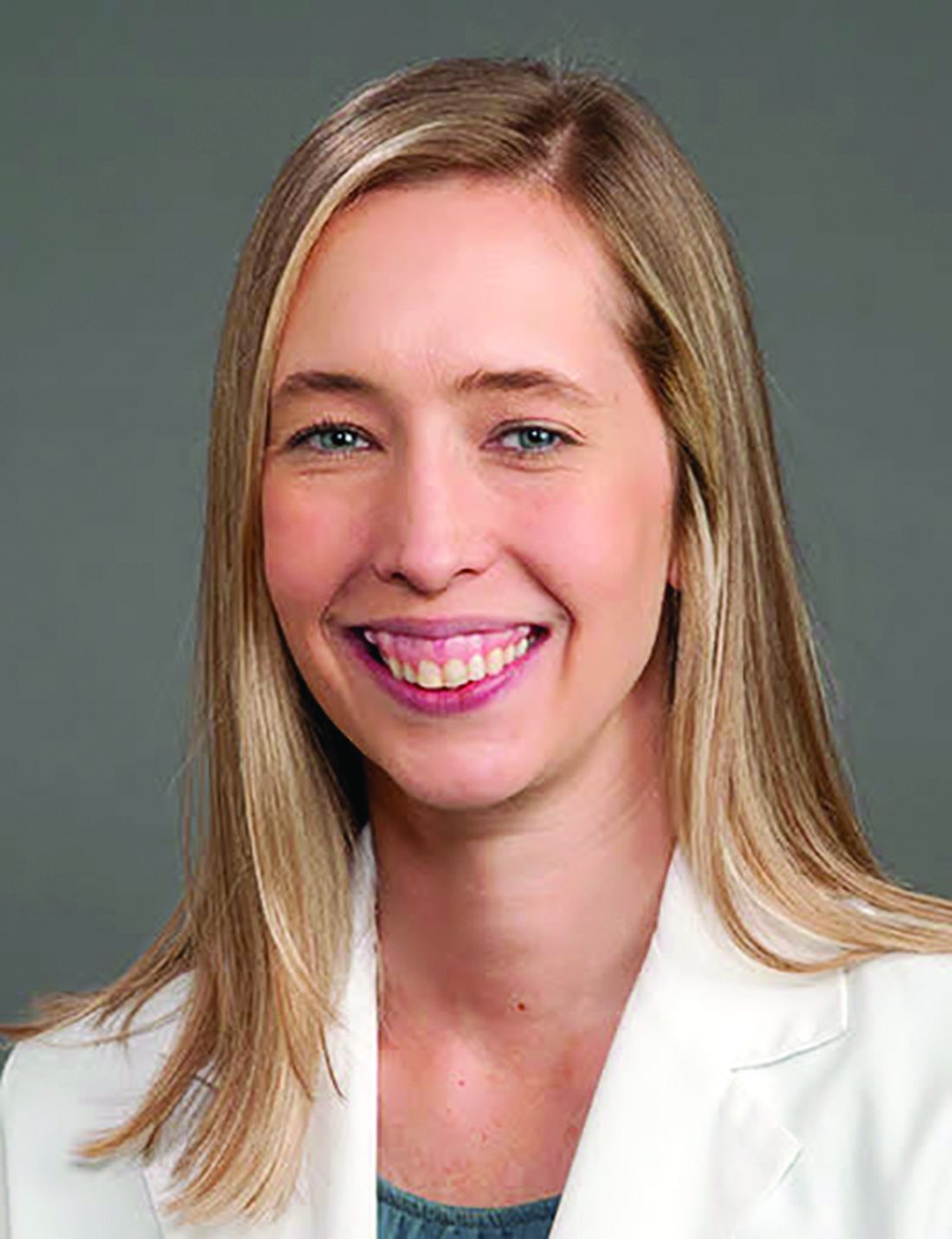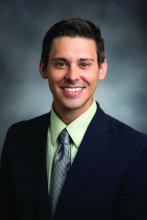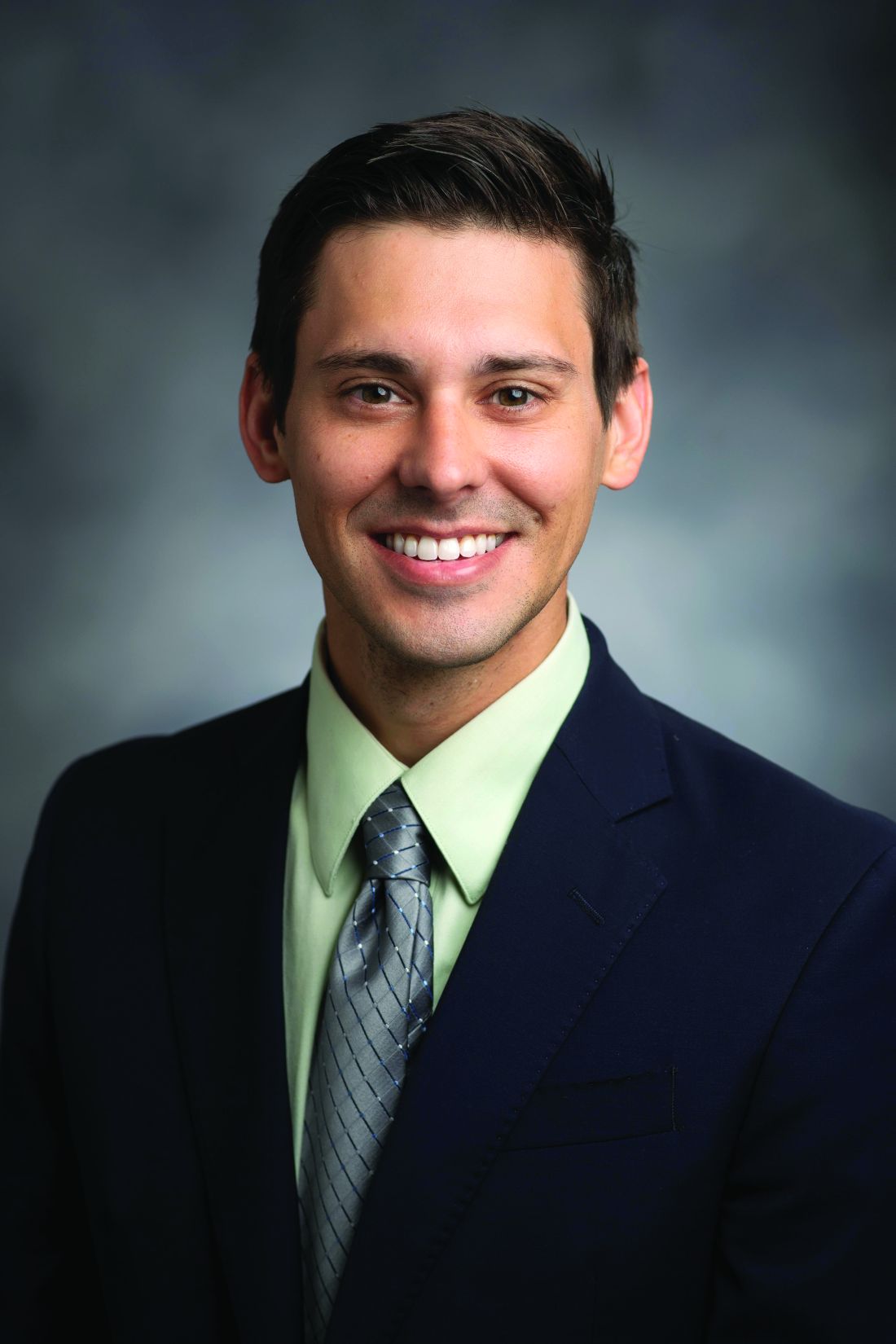User login
Prediction models in sepsis
Critical Care Network
Sepsis/Shock Section
Early recognition is the linchpin of sepsis management, as mortality from sepsis increases by 4% to 9% for every hour that diagnosis and treatment are delayed.1,2 Artificial intelligence (AI) and machine learning (ML) are increasingly featured in discussions and publications about sepsis care. Already ML models are embedded in electronic medical records (EMR), driving best-practice advisories that are presented to users.3 Epic, the EMR that serves over half of patients in the US, offers its own proprietary cognitive computing model for early detection.
As ML permeates the critical care space, it is increasingly important that clinicians understand the limitations of these models. Recently Kamran et al (NEJM AI) evaluated the Epic sepsis model with disappointing results after excluding cases already recognized by clinicians. The model achieved a positive predictive value of 5%, and 80% of high-risk sepsis cases were missed.3
An application study by Lilly et al (CHEST) showed that an ML model for clinically actionable events was more accurate with less alarm burden when compared to biomedical monitor alarms or telemedicine systems.4 The clinical utility of this model, however, remains questionable; presumably by the time a patient monitor has alarmed, the term “early recognition” can no longer be applied. In this study a significantly elevated false-positive rate required clinicians to review all cases prior to action.
ML models seem to offer incredible potential to clinicians. How they fit into current practice, however, deserves careful consideration. It may be that we just are not there yet.
References
1. Sepsis Alliance. (2024, June 19). Septic shock. 2024. https://www.sepsis.org/sepsisand/septic-shock/. Accessed September 10, 2024.
2. Djikic M, Milenkovic M, Stojadinovic M, et al. The six scoring systems’ prognostic value in predicting 24-hour mortality in septic patients. Eur Rev Med Pharmacol Sci. 2024;28(12):3849-3859.
3. Kamran F, Tjandra D, Heiler A, et al. Evaluation of sepsis prediction models before onset of treatment. NEJM AI. 2024.
4. Lilly CM, Kirk D, Pessach IM, et al. Application of machine learning models to biomedical and information system signals from critically ill adults. CHEST. 2024;165(5):1139-1148.
Critical Care Network
Sepsis/Shock Section
Early recognition is the linchpin of sepsis management, as mortality from sepsis increases by 4% to 9% for every hour that diagnosis and treatment are delayed.1,2 Artificial intelligence (AI) and machine learning (ML) are increasingly featured in discussions and publications about sepsis care. Already ML models are embedded in electronic medical records (EMR), driving best-practice advisories that are presented to users.3 Epic, the EMR that serves over half of patients in the US, offers its own proprietary cognitive computing model for early detection.
As ML permeates the critical care space, it is increasingly important that clinicians understand the limitations of these models. Recently Kamran et al (NEJM AI) evaluated the Epic sepsis model with disappointing results after excluding cases already recognized by clinicians. The model achieved a positive predictive value of 5%, and 80% of high-risk sepsis cases were missed.3
An application study by Lilly et al (CHEST) showed that an ML model for clinically actionable events was more accurate with less alarm burden when compared to biomedical monitor alarms or telemedicine systems.4 The clinical utility of this model, however, remains questionable; presumably by the time a patient monitor has alarmed, the term “early recognition” can no longer be applied. In this study a significantly elevated false-positive rate required clinicians to review all cases prior to action.
ML models seem to offer incredible potential to clinicians. How they fit into current practice, however, deserves careful consideration. It may be that we just are not there yet.
References
1. Sepsis Alliance. (2024, June 19). Septic shock. 2024. https://www.sepsis.org/sepsisand/septic-shock/. Accessed September 10, 2024.
2. Djikic M, Milenkovic M, Stojadinovic M, et al. The six scoring systems’ prognostic value in predicting 24-hour mortality in septic patients. Eur Rev Med Pharmacol Sci. 2024;28(12):3849-3859.
3. Kamran F, Tjandra D, Heiler A, et al. Evaluation of sepsis prediction models before onset of treatment. NEJM AI. 2024.
4. Lilly CM, Kirk D, Pessach IM, et al. Application of machine learning models to biomedical and information system signals from critically ill adults. CHEST. 2024;165(5):1139-1148.
Critical Care Network
Sepsis/Shock Section
Early recognition is the linchpin of sepsis management, as mortality from sepsis increases by 4% to 9% for every hour that diagnosis and treatment are delayed.1,2 Artificial intelligence (AI) and machine learning (ML) are increasingly featured in discussions and publications about sepsis care. Already ML models are embedded in electronic medical records (EMR), driving best-practice advisories that are presented to users.3 Epic, the EMR that serves over half of patients in the US, offers its own proprietary cognitive computing model for early detection.
As ML permeates the critical care space, it is increasingly important that clinicians understand the limitations of these models. Recently Kamran et al (NEJM AI) evaluated the Epic sepsis model with disappointing results after excluding cases already recognized by clinicians. The model achieved a positive predictive value of 5%, and 80% of high-risk sepsis cases were missed.3
An application study by Lilly et al (CHEST) showed that an ML model for clinically actionable events was more accurate with less alarm burden when compared to biomedical monitor alarms or telemedicine systems.4 The clinical utility of this model, however, remains questionable; presumably by the time a patient monitor has alarmed, the term “early recognition” can no longer be applied. In this study a significantly elevated false-positive rate required clinicians to review all cases prior to action.
ML models seem to offer incredible potential to clinicians. How they fit into current practice, however, deserves careful consideration. It may be that we just are not there yet.
References
1. Sepsis Alliance. (2024, June 19). Septic shock. 2024. https://www.sepsis.org/sepsisand/septic-shock/. Accessed September 10, 2024.
2. Djikic M, Milenkovic M, Stojadinovic M, et al. The six scoring systems’ prognostic value in predicting 24-hour mortality in septic patients. Eur Rev Med Pharmacol Sci. 2024;28(12):3849-3859.
3. Kamran F, Tjandra D, Heiler A, et al. Evaluation of sepsis prediction models before onset of treatment. NEJM AI. 2024.
4. Lilly CM, Kirk D, Pessach IM, et al. Application of machine learning models to biomedical and information system signals from critically ill adults. CHEST. 2024;165(5):1139-1148.
Lung ultrasound: An indispensable yet underutilized tool
Thoracic Oncology and Chest Procedures Network
Ultrasound and Chest Imaging Section
An assessment using bedside thoracic ultrasound (TUS) improves diagnostic evaluation and therapeutic management in critically ill patients without undue risk. With changes in diagnosis occurring in 23% of cases and alterations in management in 39% of critically ill patients, TUS can improve length of stay, reduce complications, minimize delays in therapy, and lower hospitalization costs.1 Compared with its cardiac counterpart, attaining proficiency in lung ultrasound (LUS) is easier.2 Intensivists are at risk of forgoing mastering LUS in favor of developing more difficult skills. Proficiency in LUS is essential, as more than half of TUS evaluations are for respiratory complaints and most findings are pulmonary.1
A quick bedside assessment outperforms chest radiographs and available clinical scores in distinguishing pneumonia from atelectasis. The presence of dynamic air bronchograms within the consolidation is 45% sensitive and 99% specific for pneumonia over atelectasis.3 When air bronchograms are static, the presence of flow on color Doppler is 98% sensitive and 68% specific for pneumonia over atelectasis. Similarly, a closer look at the pleural lining shows more than the presence or absence of lung sliding. The presence of fragmentation, irregularity, or thickening of pleural lines provides 100% specificity in discriminating a noncardiogenic interstitial pathology from cardiogenic pulmonary edema.4
LUS is the workhorse and unsung hero of point-of-care ultrasound. In the last year, LUS has shown utility beyond evaluation for pneumothorax, pulmonary edema, and pleural effusion. Its potential impact on diagnosis and management is still growing. We just need to take a closer look.
References
1. Heldeweg M, Lopez Matta JE, Pisani L, Slot S. The impact of thoracic ultrasound on clinical management of critically ill patients (UltraMan): an international prospective observational study. Crit Care Med. 2023;51:357-364.
2. Kraaijenbrink BVC, Mousa A, Bos LD, et al. Defining basic (lung) ultrasound skills: not so basic after all? Intensive Care Med. 2022;48:628–629.
3. Haaksma M, Smit J, Heldeweg M, Nooitgedacht J, de Grooth H. Extended lung ultrasound to differentiate between pneumonia and atelectasis in critically ill patients: a diagnostic accuracy study. Crit Care Med. 2022;50:750-759.
4. Heldeweg M, Smit M, Kramer-Elliott S, et al. Lung ultrasound signs to diagnose and discriminate interstitial syndromes in ICU patients: a diagnostic accuracy study in two cohorts. Crit Care Med. 2022;50(11):1607-1617.
Thoracic Oncology and Chest Procedures Network
Ultrasound and Chest Imaging Section
An assessment using bedside thoracic ultrasound (TUS) improves diagnostic evaluation and therapeutic management in critically ill patients without undue risk. With changes in diagnosis occurring in 23% of cases and alterations in management in 39% of critically ill patients, TUS can improve length of stay, reduce complications, minimize delays in therapy, and lower hospitalization costs.1 Compared with its cardiac counterpart, attaining proficiency in lung ultrasound (LUS) is easier.2 Intensivists are at risk of forgoing mastering LUS in favor of developing more difficult skills. Proficiency in LUS is essential, as more than half of TUS evaluations are for respiratory complaints and most findings are pulmonary.1
A quick bedside assessment outperforms chest radiographs and available clinical scores in distinguishing pneumonia from atelectasis. The presence of dynamic air bronchograms within the consolidation is 45% sensitive and 99% specific for pneumonia over atelectasis.3 When air bronchograms are static, the presence of flow on color Doppler is 98% sensitive and 68% specific for pneumonia over atelectasis. Similarly, a closer look at the pleural lining shows more than the presence or absence of lung sliding. The presence of fragmentation, irregularity, or thickening of pleural lines provides 100% specificity in discriminating a noncardiogenic interstitial pathology from cardiogenic pulmonary edema.4
LUS is the workhorse and unsung hero of point-of-care ultrasound. In the last year, LUS has shown utility beyond evaluation for pneumothorax, pulmonary edema, and pleural effusion. Its potential impact on diagnosis and management is still growing. We just need to take a closer look.
References
1. Heldeweg M, Lopez Matta JE, Pisani L, Slot S. The impact of thoracic ultrasound on clinical management of critically ill patients (UltraMan): an international prospective observational study. Crit Care Med. 2023;51:357-364.
2. Kraaijenbrink BVC, Mousa A, Bos LD, et al. Defining basic (lung) ultrasound skills: not so basic after all? Intensive Care Med. 2022;48:628–629.
3. Haaksma M, Smit J, Heldeweg M, Nooitgedacht J, de Grooth H. Extended lung ultrasound to differentiate between pneumonia and atelectasis in critically ill patients: a diagnostic accuracy study. Crit Care Med. 2022;50:750-759.
4. Heldeweg M, Smit M, Kramer-Elliott S, et al. Lung ultrasound signs to diagnose and discriminate interstitial syndromes in ICU patients: a diagnostic accuracy study in two cohorts. Crit Care Med. 2022;50(11):1607-1617.
Thoracic Oncology and Chest Procedures Network
Ultrasound and Chest Imaging Section
An assessment using bedside thoracic ultrasound (TUS) improves diagnostic evaluation and therapeutic management in critically ill patients without undue risk. With changes in diagnosis occurring in 23% of cases and alterations in management in 39% of critically ill patients, TUS can improve length of stay, reduce complications, minimize delays in therapy, and lower hospitalization costs.1 Compared with its cardiac counterpart, attaining proficiency in lung ultrasound (LUS) is easier.2 Intensivists are at risk of forgoing mastering LUS in favor of developing more difficult skills. Proficiency in LUS is essential, as more than half of TUS evaluations are for respiratory complaints and most findings are pulmonary.1
A quick bedside assessment outperforms chest radiographs and available clinical scores in distinguishing pneumonia from atelectasis. The presence of dynamic air bronchograms within the consolidation is 45% sensitive and 99% specific for pneumonia over atelectasis.3 When air bronchograms are static, the presence of flow on color Doppler is 98% sensitive and 68% specific for pneumonia over atelectasis. Similarly, a closer look at the pleural lining shows more than the presence or absence of lung sliding. The presence of fragmentation, irregularity, or thickening of pleural lines provides 100% specificity in discriminating a noncardiogenic interstitial pathology from cardiogenic pulmonary edema.4
LUS is the workhorse and unsung hero of point-of-care ultrasound. In the last year, LUS has shown utility beyond evaluation for pneumothorax, pulmonary edema, and pleural effusion. Its potential impact on diagnosis and management is still growing. We just need to take a closer look.
References
1. Heldeweg M, Lopez Matta JE, Pisani L, Slot S. The impact of thoracic ultrasound on clinical management of critically ill patients (UltraMan): an international prospective observational study. Crit Care Med. 2023;51:357-364.
2. Kraaijenbrink BVC, Mousa A, Bos LD, et al. Defining basic (lung) ultrasound skills: not so basic after all? Intensive Care Med. 2022;48:628–629.
3. Haaksma M, Smit J, Heldeweg M, Nooitgedacht J, de Grooth H. Extended lung ultrasound to differentiate between pneumonia and atelectasis in critically ill patients: a diagnostic accuracy study. Crit Care Med. 2022;50:750-759.
4. Heldeweg M, Smit M, Kramer-Elliott S, et al. Lung ultrasound signs to diagnose and discriminate interstitial syndromes in ICU patients: a diagnostic accuracy study in two cohorts. Crit Care Med. 2022;50(11):1607-1617.
2025 Crohn’s & Colitis Congress® Abstract Submissions
The 2025 Crohn’s & Colitis Congress®, a partnership of the Crohn’s & Colitis Foundation and AGA, is now accepting original inflammatory bowel disease (IBD)-research abstract submissions through Oct. 16. Abstracts are free to submit and may be selected for in-person lectures or poster presentations. Accepted abstracts will also be co-published in AGA’s Gastroenterology (https://www.gastrojournal.org/) and the Crohn’s & Colitis Foundation’s Inflammatory Bowel Diseases (https://academic.oup.com/ibdjournal).
Be sure to review the abstract submission guidelines and submit by 9 p.m. EDT, Wednesday, Oct. 16.
Presenting authors will receive notification of acceptance on Monday, Dec. 9.
The Crohn’s & Colitis Congress will take place Feb. 6-8, 2025, in San Francisco, California. It brings together the community of multidisciplinary experts and colleagues to revolutionize prevention, care and outcomes for IBD patients.
Learn alongside your colleagues and discover how to provide the absolute best care to those suffering with Crohn’s disease and ulcerative colitis.
The 2025 Crohn’s & Colitis Congress®, a partnership of the Crohn’s & Colitis Foundation and AGA, is now accepting original inflammatory bowel disease (IBD)-research abstract submissions through Oct. 16. Abstracts are free to submit and may be selected for in-person lectures or poster presentations. Accepted abstracts will also be co-published in AGA’s Gastroenterology (https://www.gastrojournal.org/) and the Crohn’s & Colitis Foundation’s Inflammatory Bowel Diseases (https://academic.oup.com/ibdjournal).
Be sure to review the abstract submission guidelines and submit by 9 p.m. EDT, Wednesday, Oct. 16.
Presenting authors will receive notification of acceptance on Monday, Dec. 9.
The Crohn’s & Colitis Congress will take place Feb. 6-8, 2025, in San Francisco, California. It brings together the community of multidisciplinary experts and colleagues to revolutionize prevention, care and outcomes for IBD patients.
Learn alongside your colleagues and discover how to provide the absolute best care to those suffering with Crohn’s disease and ulcerative colitis.
The 2025 Crohn’s & Colitis Congress®, a partnership of the Crohn’s & Colitis Foundation and AGA, is now accepting original inflammatory bowel disease (IBD)-research abstract submissions through Oct. 16. Abstracts are free to submit and may be selected for in-person lectures or poster presentations. Accepted abstracts will also be co-published in AGA’s Gastroenterology (https://www.gastrojournal.org/) and the Crohn’s & Colitis Foundation’s Inflammatory Bowel Diseases (https://academic.oup.com/ibdjournal).
Be sure to review the abstract submission guidelines and submit by 9 p.m. EDT, Wednesday, Oct. 16.
Presenting authors will receive notification of acceptance on Monday, Dec. 9.
The Crohn’s & Colitis Congress will take place Feb. 6-8, 2025, in San Francisco, California. It brings together the community of multidisciplinary experts and colleagues to revolutionize prevention, care and outcomes for IBD patients.
Learn alongside your colleagues and discover how to provide the absolute best care to those suffering with Crohn’s disease and ulcerative colitis.
Meet Our 10 Editorial Fellows
We are excited to announce the 2024-25 participants, who will gain hands-on experience and mentorship working closely with the editors and staff at the AGA journals over the next year.
The 10 editorial fellows (2 per journal) will learn about the entire editorial process, from manuscript submission to peer review to acceptance. They will participate in discussions and conferences with the boards of editors, assist with manuscript review, and help disseminate articles via their social media platforms.
Clinical Gastroenterology and Hepatology
Robyn Jordan, MD, MPH
Johns Hopkins Hospital, Baltimore | USA
Daryl Ramai, MD, MPH, MSc
Brigham and Women’s Hospital, Boston | USA
Cellular and Molecular Gastroenterology and Hepatology
Kole H. Buckley, PhD
University of Pennsylvania Perelman School of Medicine, Philadelphia | USA
Lin Y. Hung, PhD
New York University | USA
Gastroenterology
Corey J. Ketchem, MD
University of Pennsylvania, Philadelphia | USA
Rishad Khan, MD
University of Toronto | Canada
Gastro Hep Advances
Sasha Kapil, MD
UT Southwestern Medical Center, Dallas | USA
June Tome, MD
Mayo Clinic, Rochester, Minnesota | USA
Techniques and Innovations in Gastrointestinal Endoscopy
Thomas Enke, MD
University of Colorado, Aurora | USA
Sami Elamin, MD
Harvard, Beth Israel Deaconess Medical Center, Boston | USA
We are excited to announce the 2024-25 participants, who will gain hands-on experience and mentorship working closely with the editors and staff at the AGA journals over the next year.
The 10 editorial fellows (2 per journal) will learn about the entire editorial process, from manuscript submission to peer review to acceptance. They will participate in discussions and conferences with the boards of editors, assist with manuscript review, and help disseminate articles via their social media platforms.
Clinical Gastroenterology and Hepatology
Robyn Jordan, MD, MPH
Johns Hopkins Hospital, Baltimore | USA
Daryl Ramai, MD, MPH, MSc
Brigham and Women’s Hospital, Boston | USA
Cellular and Molecular Gastroenterology and Hepatology
Kole H. Buckley, PhD
University of Pennsylvania Perelman School of Medicine, Philadelphia | USA
Lin Y. Hung, PhD
New York University | USA
Gastroenterology
Corey J. Ketchem, MD
University of Pennsylvania, Philadelphia | USA
Rishad Khan, MD
University of Toronto | Canada
Gastro Hep Advances
Sasha Kapil, MD
UT Southwestern Medical Center, Dallas | USA
June Tome, MD
Mayo Clinic, Rochester, Minnesota | USA
Techniques and Innovations in Gastrointestinal Endoscopy
Thomas Enke, MD
University of Colorado, Aurora | USA
Sami Elamin, MD
Harvard, Beth Israel Deaconess Medical Center, Boston | USA
We are excited to announce the 2024-25 participants, who will gain hands-on experience and mentorship working closely with the editors and staff at the AGA journals over the next year.
The 10 editorial fellows (2 per journal) will learn about the entire editorial process, from manuscript submission to peer review to acceptance. They will participate in discussions and conferences with the boards of editors, assist with manuscript review, and help disseminate articles via their social media platforms.
Clinical Gastroenterology and Hepatology
Robyn Jordan, MD, MPH
Johns Hopkins Hospital, Baltimore | USA
Daryl Ramai, MD, MPH, MSc
Brigham and Women’s Hospital, Boston | USA
Cellular and Molecular Gastroenterology and Hepatology
Kole H. Buckley, PhD
University of Pennsylvania Perelman School of Medicine, Philadelphia | USA
Lin Y. Hung, PhD
New York University | USA
Gastroenterology
Corey J. Ketchem, MD
University of Pennsylvania, Philadelphia | USA
Rishad Khan, MD
University of Toronto | Canada
Gastro Hep Advances
Sasha Kapil, MD
UT Southwestern Medical Center, Dallas | USA
June Tome, MD
Mayo Clinic, Rochester, Minnesota | USA
Techniques and Innovations in Gastrointestinal Endoscopy
Thomas Enke, MD
University of Colorado, Aurora | USA
Sami Elamin, MD
Harvard, Beth Israel Deaconess Medical Center, Boston | USA
Creating a Planned Gift That’s Meaningful To You
The AGA Research Foundation has helped make significant strides in advancing the treatment and cure of digestive diseases by funding talented investigators.
Planning your gift to benefit AGA Research Foundation in the future is an opportunity to express what matters to you. As an AGA member, you can work with the AGA Research Foundation to ensure that your planned gift is designated for a purpose that meets your goals for leaving a legacy—such as research awards, support for specific programs, or unrestricted gifts to help meet the Foundation’s mission.
In as little as one sentence in your will and/or trust, you can complete your gift: “I give to AGA Research Foundation, a nonprofit corporation currently located at 4930 Del Ray Avenue, Bethesda, MD 20814, or its successor thereto, _________ [written amount or percentage of the estate or description of property] for its unrestricted charitable use and purpose.”
If you have named the AGA Research Foundation in your will or trust, please let us know so we can ensure that your gift is used according to your wishes. Notifying us of your plans will enable us to plan for the use of your future gift. However, if you prefer to remain anonymous, we will keep your name and gift in strict confidence.
Please contact foundation@gastro.org for more information. If you are considering a planned gift, consult with your own legal and tax advisors.
The AGA Research Foundation has helped make significant strides in advancing the treatment and cure of digestive diseases by funding talented investigators.
Planning your gift to benefit AGA Research Foundation in the future is an opportunity to express what matters to you. As an AGA member, you can work with the AGA Research Foundation to ensure that your planned gift is designated for a purpose that meets your goals for leaving a legacy—such as research awards, support for specific programs, or unrestricted gifts to help meet the Foundation’s mission.
In as little as one sentence in your will and/or trust, you can complete your gift: “I give to AGA Research Foundation, a nonprofit corporation currently located at 4930 Del Ray Avenue, Bethesda, MD 20814, or its successor thereto, _________ [written amount or percentage of the estate or description of property] for its unrestricted charitable use and purpose.”
If you have named the AGA Research Foundation in your will or trust, please let us know so we can ensure that your gift is used according to your wishes. Notifying us of your plans will enable us to plan for the use of your future gift. However, if you prefer to remain anonymous, we will keep your name and gift in strict confidence.
Please contact foundation@gastro.org for more information. If you are considering a planned gift, consult with your own legal and tax advisors.
The AGA Research Foundation has helped make significant strides in advancing the treatment and cure of digestive diseases by funding talented investigators.
Planning your gift to benefit AGA Research Foundation in the future is an opportunity to express what matters to you. As an AGA member, you can work with the AGA Research Foundation to ensure that your planned gift is designated for a purpose that meets your goals for leaving a legacy—such as research awards, support for specific programs, or unrestricted gifts to help meet the Foundation’s mission.
In as little as one sentence in your will and/or trust, you can complete your gift: “I give to AGA Research Foundation, a nonprofit corporation currently located at 4930 Del Ray Avenue, Bethesda, MD 20814, or its successor thereto, _________ [written amount or percentage of the estate or description of property] for its unrestricted charitable use and purpose.”
If you have named the AGA Research Foundation in your will or trust, please let us know so we can ensure that your gift is used according to your wishes. Notifying us of your plans will enable us to plan for the use of your future gift. However, if you prefer to remain anonymous, we will keep your name and gift in strict confidence.
Please contact foundation@gastro.org for more information. If you are considering a planned gift, consult with your own legal and tax advisors.
Hospital to home tracheostomy care
SLEEP MEDICINE NETWORK
Home-Based Mechanical Ventilation and Neuromuscular Section
Technological improvement has enhanced our ability to support these patients with complex conditions in their home settings. However, clinical practice guidelines are lacking, and current practice relies on a consensus of expert opinions.1-3
Once a patient who has had a tracheostomy begins transitioning care to home, identifying caregivers is vital.
Caregivers need to be educated on daily tracheostomy care, airway clearance, and ventilator management.
Protocols to standardize this transition, such as the “Trach Trail” protocol, help reduce ICU readmissions with new tracheostomies (P = .05), eliminate predischarge mortality (P = .05), and may decrease ICU length of stay (P = 0.72).4 Standardized protocols for aspects of tracheostomy care, such as the “Go-Bag” from Boston Children’s Hospital, ensure that a consistent approach keeps providers, families, and patients familiar with their equipment and safety procedures, improving outcomes and decreasing tracheostomy-related adverse events.4-6
Understanding the landscape surrounding which equipment companies have trained field respiratory therapists is crucial. Airway clearance is key to improving ventilation and oxygenation and maintaining tracheostomy patency. Knowing the types of airway clearance modalities used for each patient remains critical.
Trach care may look substantially different for some populations, like patients in the neonatal ICU. Trach changes may happen more frequently. Speaking valve times may be gradually increased while planning for possible decannulation. Skin care involving granulation tissue and stoma complications is particularly important for this population. Active infants need well-fitting trach ties to balance enough support to maintain their trach without causing skin breakdown or discomfort. Securing the trach to prevent pulling or dislodgement as infants become more active is crucial as developmental milestones are achieved.
We hope national societies prioritize standardizing care for this vulnerable population while promoting additional high-quality, patient-centered outcomes in research studies. Implementation strategies to promote interprofessional teams to enhance education, communication, and outcomes will reduce health care disparities.
References
1. Am J Respir Crit Care Med Vol 161. pp Sherman JM, Davis S, Albamonte-Petrick S, et al. Care of the child with a chronic tracheostomy. This official statement of the American Thoracic Society was adopted by the ATS Board of Directors, July 1999. Am J Respir Crit Care Med. 2000;161(1):297-308. doi: 10.1164/ajrccm.161.1.ats1-00 297-308, 2000
2. Mitchell RB, Hussey HM, Setzen G, et al. Clinical consensus statement: tracheostomy care. Otolaryngol Head Neck Surg. 2013;148(1):6-20. Preprint. Posted online September 18, 2012. PMID: 22990518. doi: 10.1177/0194599812460376
3. Sterni LM, Collaco JM, Baker CD, et al; ATS Pediatric Chronic Home Ventilation Workgroup. An official American Thoracic Society clinical practice guideline: pediatric chronic home invasive ventilation. Am J Respir Crit Care Med. 2016;193(8):e16-35. PMID: 27082538; PMCID: PMC5439679. doi: 10.1164/rccm.201602-0276ST
4. Cherney RL, Pandian V, Ninan A, et al. The Trach Trail: a systems-based pathway to improve quality of tracheostomy care and interdisciplinary collaboration. Otolaryngol Head Neck Surg. 2020;163(2):232-243. doi: 10.1177/0194599820917427
5. Brown J. Tracheostomy to noninvasive ventilation: from acute care to home. Sleep Med Clin. 2020;15(4):593-598. doi: 10.1016/j.jsmc.2020.08.003
6. Kohn J, McKeon M, Munhall D, Blanchette S, Wells S, Watters K. Standardization of pediatric tracheostomy care with “Go-bags.” Int J Pediatr Otorhinolaryngol. 2019;121:154-156. doi: 10.1016/j.ijporl.2019.03.022
SLEEP MEDICINE NETWORK
Home-Based Mechanical Ventilation and Neuromuscular Section
Technological improvement has enhanced our ability to support these patients with complex conditions in their home settings. However, clinical practice guidelines are lacking, and current practice relies on a consensus of expert opinions.1-3
Once a patient who has had a tracheostomy begins transitioning care to home, identifying caregivers is vital.
Caregivers need to be educated on daily tracheostomy care, airway clearance, and ventilator management.
Protocols to standardize this transition, such as the “Trach Trail” protocol, help reduce ICU readmissions with new tracheostomies (P = .05), eliminate predischarge mortality (P = .05), and may decrease ICU length of stay (P = 0.72).4 Standardized protocols for aspects of tracheostomy care, such as the “Go-Bag” from Boston Children’s Hospital, ensure that a consistent approach keeps providers, families, and patients familiar with their equipment and safety procedures, improving outcomes and decreasing tracheostomy-related adverse events.4-6
Understanding the landscape surrounding which equipment companies have trained field respiratory therapists is crucial. Airway clearance is key to improving ventilation and oxygenation and maintaining tracheostomy patency. Knowing the types of airway clearance modalities used for each patient remains critical.
Trach care may look substantially different for some populations, like patients in the neonatal ICU. Trach changes may happen more frequently. Speaking valve times may be gradually increased while planning for possible decannulation. Skin care involving granulation tissue and stoma complications is particularly important for this population. Active infants need well-fitting trach ties to balance enough support to maintain their trach without causing skin breakdown or discomfort. Securing the trach to prevent pulling or dislodgement as infants become more active is crucial as developmental milestones are achieved.
We hope national societies prioritize standardizing care for this vulnerable population while promoting additional high-quality, patient-centered outcomes in research studies. Implementation strategies to promote interprofessional teams to enhance education, communication, and outcomes will reduce health care disparities.
References
1. Am J Respir Crit Care Med Vol 161. pp Sherman JM, Davis S, Albamonte-Petrick S, et al. Care of the child with a chronic tracheostomy. This official statement of the American Thoracic Society was adopted by the ATS Board of Directors, July 1999. Am J Respir Crit Care Med. 2000;161(1):297-308. doi: 10.1164/ajrccm.161.1.ats1-00 297-308, 2000
2. Mitchell RB, Hussey HM, Setzen G, et al. Clinical consensus statement: tracheostomy care. Otolaryngol Head Neck Surg. 2013;148(1):6-20. Preprint. Posted online September 18, 2012. PMID: 22990518. doi: 10.1177/0194599812460376
3. Sterni LM, Collaco JM, Baker CD, et al; ATS Pediatric Chronic Home Ventilation Workgroup. An official American Thoracic Society clinical practice guideline: pediatric chronic home invasive ventilation. Am J Respir Crit Care Med. 2016;193(8):e16-35. PMID: 27082538; PMCID: PMC5439679. doi: 10.1164/rccm.201602-0276ST
4. Cherney RL, Pandian V, Ninan A, et al. The Trach Trail: a systems-based pathway to improve quality of tracheostomy care and interdisciplinary collaboration. Otolaryngol Head Neck Surg. 2020;163(2):232-243. doi: 10.1177/0194599820917427
5. Brown J. Tracheostomy to noninvasive ventilation: from acute care to home. Sleep Med Clin. 2020;15(4):593-598. doi: 10.1016/j.jsmc.2020.08.003
6. Kohn J, McKeon M, Munhall D, Blanchette S, Wells S, Watters K. Standardization of pediatric tracheostomy care with “Go-bags.” Int J Pediatr Otorhinolaryngol. 2019;121:154-156. doi: 10.1016/j.ijporl.2019.03.022
SLEEP MEDICINE NETWORK
Home-Based Mechanical Ventilation and Neuromuscular Section
Technological improvement has enhanced our ability to support these patients with complex conditions in their home settings. However, clinical practice guidelines are lacking, and current practice relies on a consensus of expert opinions.1-3
Once a patient who has had a tracheostomy begins transitioning care to home, identifying caregivers is vital.
Caregivers need to be educated on daily tracheostomy care, airway clearance, and ventilator management.
Protocols to standardize this transition, such as the “Trach Trail” protocol, help reduce ICU readmissions with new tracheostomies (P = .05), eliminate predischarge mortality (P = .05), and may decrease ICU length of stay (P = 0.72).4 Standardized protocols for aspects of tracheostomy care, such as the “Go-Bag” from Boston Children’s Hospital, ensure that a consistent approach keeps providers, families, and patients familiar with their equipment and safety procedures, improving outcomes and decreasing tracheostomy-related adverse events.4-6
Understanding the landscape surrounding which equipment companies have trained field respiratory therapists is crucial. Airway clearance is key to improving ventilation and oxygenation and maintaining tracheostomy patency. Knowing the types of airway clearance modalities used for each patient remains critical.
Trach care may look substantially different for some populations, like patients in the neonatal ICU. Trach changes may happen more frequently. Speaking valve times may be gradually increased while planning for possible decannulation. Skin care involving granulation tissue and stoma complications is particularly important for this population. Active infants need well-fitting trach ties to balance enough support to maintain their trach without causing skin breakdown or discomfort. Securing the trach to prevent pulling or dislodgement as infants become more active is crucial as developmental milestones are achieved.
We hope national societies prioritize standardizing care for this vulnerable population while promoting additional high-quality, patient-centered outcomes in research studies. Implementation strategies to promote interprofessional teams to enhance education, communication, and outcomes will reduce health care disparities.
References
1. Am J Respir Crit Care Med Vol 161. pp Sherman JM, Davis S, Albamonte-Petrick S, et al. Care of the child with a chronic tracheostomy. This official statement of the American Thoracic Society was adopted by the ATS Board of Directors, July 1999. Am J Respir Crit Care Med. 2000;161(1):297-308. doi: 10.1164/ajrccm.161.1.ats1-00 297-308, 2000
2. Mitchell RB, Hussey HM, Setzen G, et al. Clinical consensus statement: tracheostomy care. Otolaryngol Head Neck Surg. 2013;148(1):6-20. Preprint. Posted online September 18, 2012. PMID: 22990518. doi: 10.1177/0194599812460376
3. Sterni LM, Collaco JM, Baker CD, et al; ATS Pediatric Chronic Home Ventilation Workgroup. An official American Thoracic Society clinical practice guideline: pediatric chronic home invasive ventilation. Am J Respir Crit Care Med. 2016;193(8):e16-35. PMID: 27082538; PMCID: PMC5439679. doi: 10.1164/rccm.201602-0276ST
4. Cherney RL, Pandian V, Ninan A, et al. The Trach Trail: a systems-based pathway to improve quality of tracheostomy care and interdisciplinary collaboration. Otolaryngol Head Neck Surg. 2020;163(2):232-243. doi: 10.1177/0194599820917427
5. Brown J. Tracheostomy to noninvasive ventilation: from acute care to home. Sleep Med Clin. 2020;15(4):593-598. doi: 10.1016/j.jsmc.2020.08.003
6. Kohn J, McKeon M, Munhall D, Blanchette S, Wells S, Watters K. Standardization of pediatric tracheostomy care with “Go-bags.” Int J Pediatr Otorhinolaryngol. 2019;121:154-156. doi: 10.1016/j.ijporl.2019.03.022
HALT early recognition is key
DIFFUSE LUNG DISEASE AND LUNG TRANSPLANT NETWORK
Lung Transplant Section
Hyperammonemia after lung transplantation (HALT) is a rare but serious complication occurring in 1% to 4% of patients with high morbidity and mortality. Early recognition is crucial, as mortality rates can reach 75%.1
HALT arises from excess ammonia production or decreased clearance and is often linked to infections by urea-splitting organisms, including mycoplasma and ureaplasma. Prompt, aggressive treatment is essential and typically includes dietary protein restriction, renal replacement therapy (ideally intermittent hemodialysis), bowel decontamination (lactulose, rifaximin, metronidazole, or neomycin), amino acids (arginine and levocarnitine), nitrogen scavengers (sodium phenylbutyrate or glycerol phenylbutyrate), and empiric antimicrobial coverage for urea-splitting organisms.2 Given concerns for calcineurin inhibitor-induced hyperammonemia, transition to an alternative agent may be considered.
Given the severe risks associated with HALT, vigilance is vital, particularly in intubated and sedated patients where monitoring of neurologic status is more challenging. Protocols may involve routine serum ammonia monitoring, polymerase chain reaction testing for mycoplasma and ureaplasma at the time of transplant or with postoperative bronchoscopy, and empiric antimicrobial treatment. No definitive ammonia threshold exists, but altered sensorium with elevated levels warrants immediate and more aggressive treatment with levels >75 μmol/L. Early testing and symptom recognition can significantly improve survival rates in this potentially devastating condition.
References
1. Leger RF, Silverman MS, Hauck ES, Guvakova KD. Hyperammonemia post lung transplantation: a review. Clin Med Insights Circ Respir Pulm Med. 2020;14:1179548420966234. doi:10.1177/1179548420966234
2. Chen C, Bain KB, Luppa JA. Hyperammonemia syndrome after lung transplantation: a single center experience. Transplantation. 2016;100(3):678-684. doi:10.1097/TP.0000000000000868
DIFFUSE LUNG DISEASE AND LUNG TRANSPLANT NETWORK
Lung Transplant Section
Hyperammonemia after lung transplantation (HALT) is a rare but serious complication occurring in 1% to 4% of patients with high morbidity and mortality. Early recognition is crucial, as mortality rates can reach 75%.1
HALT arises from excess ammonia production or decreased clearance and is often linked to infections by urea-splitting organisms, including mycoplasma and ureaplasma. Prompt, aggressive treatment is essential and typically includes dietary protein restriction, renal replacement therapy (ideally intermittent hemodialysis), bowel decontamination (lactulose, rifaximin, metronidazole, or neomycin), amino acids (arginine and levocarnitine), nitrogen scavengers (sodium phenylbutyrate or glycerol phenylbutyrate), and empiric antimicrobial coverage for urea-splitting organisms.2 Given concerns for calcineurin inhibitor-induced hyperammonemia, transition to an alternative agent may be considered.
Given the severe risks associated with HALT, vigilance is vital, particularly in intubated and sedated patients where monitoring of neurologic status is more challenging. Protocols may involve routine serum ammonia monitoring, polymerase chain reaction testing for mycoplasma and ureaplasma at the time of transplant or with postoperative bronchoscopy, and empiric antimicrobial treatment. No definitive ammonia threshold exists, but altered sensorium with elevated levels warrants immediate and more aggressive treatment with levels >75 μmol/L. Early testing and symptom recognition can significantly improve survival rates in this potentially devastating condition.
References
1. Leger RF, Silverman MS, Hauck ES, Guvakova KD. Hyperammonemia post lung transplantation: a review. Clin Med Insights Circ Respir Pulm Med. 2020;14:1179548420966234. doi:10.1177/1179548420966234
2. Chen C, Bain KB, Luppa JA. Hyperammonemia syndrome after lung transplantation: a single center experience. Transplantation. 2016;100(3):678-684. doi:10.1097/TP.0000000000000868
DIFFUSE LUNG DISEASE AND LUNG TRANSPLANT NETWORK
Lung Transplant Section
Hyperammonemia after lung transplantation (HALT) is a rare but serious complication occurring in 1% to 4% of patients with high morbidity and mortality. Early recognition is crucial, as mortality rates can reach 75%.1
HALT arises from excess ammonia production or decreased clearance and is often linked to infections by urea-splitting organisms, including mycoplasma and ureaplasma. Prompt, aggressive treatment is essential and typically includes dietary protein restriction, renal replacement therapy (ideally intermittent hemodialysis), bowel decontamination (lactulose, rifaximin, metronidazole, or neomycin), amino acids (arginine and levocarnitine), nitrogen scavengers (sodium phenylbutyrate or glycerol phenylbutyrate), and empiric antimicrobial coverage for urea-splitting organisms.2 Given concerns for calcineurin inhibitor-induced hyperammonemia, transition to an alternative agent may be considered.
Given the severe risks associated with HALT, vigilance is vital, particularly in intubated and sedated patients where monitoring of neurologic status is more challenging. Protocols may involve routine serum ammonia monitoring, polymerase chain reaction testing for mycoplasma and ureaplasma at the time of transplant or with postoperative bronchoscopy, and empiric antimicrobial treatment. No definitive ammonia threshold exists, but altered sensorium with elevated levels warrants immediate and more aggressive treatment with levels >75 μmol/L. Early testing and symptom recognition can significantly improve survival rates in this potentially devastating condition.
References
1. Leger RF, Silverman MS, Hauck ES, Guvakova KD. Hyperammonemia post lung transplantation: a review. Clin Med Insights Circ Respir Pulm Med. 2020;14:1179548420966234. doi:10.1177/1179548420966234
2. Chen C, Bain KB, Luppa JA. Hyperammonemia syndrome after lung transplantation: a single center experience. Transplantation. 2016;100(3):678-684. doi:10.1097/TP.0000000000000868
Advancements in nutritional management for critically ill patients
CRITICAL CARE NETWORK
Nonrespiratory Critical Care Section
Nutrition plays an important role in the management and recovery of critically ill patients admitted to the ICU. Major guidelines recommend that critically ill patients should receive 1.2 to 2.0 g/kg/day of protein, with an emphasis on early (within 48 hours of ICU admission) enteral nutrition.1-3
In a randomized controlled trial involving 173 critically ill patients who stayed in the ICU in Zhejiang, China, Wang and colleagues studied the impact of early high protein intake (1.5 g/kg/day vs 0.8 g/kg/day).4 The primary outcome of 28-day mortality was lower among the high protein intake group (8.14% vs 19.54%). Still, this intention-to-treat analysis did not reach a statistical significance (P = .051). However, a time-to-event analysis using the Cox proportional hazard model showed that the high protein intake group had a significantly lower 28-day mortality rate, shorter ICU stays, and improved nutritional status, particularly in patients with sepsis (P = .045).
In a systematic review and meta-analysis involving 19 randomized controlled trials and 1,731 patients, there was no definitive evidence that higher protein intake significantly reduces mortality. However, it may improve specific clinical outcomes like muscle mass retention and shorter duration of mechanical ventilation.5 Similarly, a post hoc analysis on the EFFORT Protein Trial focusing on critically ill patients with acute kidney injury (AKI) showed that higher protein intake did not significantly impact the duration of kidney replacement therapy but was associated with higher serum urea levels and slower time-to-discharge-alive among patients with AKI.6
For critically ill patients, increasing early protein intake to 1.5 g/kg/day is safe and may be beneficial. We still need more data to guide the best approach to determining the protein intake.
References
1. Taylor BE, McClave SA, Martindale RG, et al. Guidelines for the provision and assessment of nutrition support therapy in the adult critically ill patient: Society of Critical Care Medicine (SCCM) and American Society for Parenteral and Enteral Nutrition (ASPEN). Crit Care Med. 2016;44(2):390-438. doi:10.1097/CCM.0000000000001525
2. Singer P, Blaser AR, Berger MM, et al. ESPEN guideline on clinical nutrition in the intensive care unit. Clin Nutr. 2019;38(1):48-79. doi:10.1016/j.clnu.2018.08.037
3. McClave SA, Taylor BE, Martindale RG, et al. Guidelines for the provision and assessment of nutrition support therapy in the adult critically ill patient: Society of Critical Care Medicine (SCCM) and American Society for Parenteral and Enteral Nutrition (ASPEN). JJPEN J Parenter Enteral Nutr. 2016;40(2):159-211. doi:10.1177/0148607115621863
4. Wang Y, Ye Y, Xuan L, et al. Impact of early high protein intake in critically ill patients: a randomized controlled trial. Nutr Metab. 2024;21(1):39. doi.org/10.1186/s12986-024-00818-8
5. Lee ZY, Yap CSL, Hasan MS, et al. The effect of higher versus lower protein delivery in critically ill patients: a systematic review and meta-analysis of randomized controlled trials. Crit Care. 2021;25(1):260. doi.org/10.1186/s13054-021-03693-4
6. Stoppe C, Patel JJ, Zarbock A, et al. The impact of higher protein dosing on outcomes in critically ill patients with acute kidney injury: a post hoc analysis of the EFFORT protein trial. Crit Care. 2023;27(1):399. doi.org/10.1186/s13054-023-04663-8
CRITICAL CARE NETWORK
Nonrespiratory Critical Care Section
Nutrition plays an important role in the management and recovery of critically ill patients admitted to the ICU. Major guidelines recommend that critically ill patients should receive 1.2 to 2.0 g/kg/day of protein, with an emphasis on early (within 48 hours of ICU admission) enteral nutrition.1-3
In a randomized controlled trial involving 173 critically ill patients who stayed in the ICU in Zhejiang, China, Wang and colleagues studied the impact of early high protein intake (1.5 g/kg/day vs 0.8 g/kg/day).4 The primary outcome of 28-day mortality was lower among the high protein intake group (8.14% vs 19.54%). Still, this intention-to-treat analysis did not reach a statistical significance (P = .051). However, a time-to-event analysis using the Cox proportional hazard model showed that the high protein intake group had a significantly lower 28-day mortality rate, shorter ICU stays, and improved nutritional status, particularly in patients with sepsis (P = .045).
In a systematic review and meta-analysis involving 19 randomized controlled trials and 1,731 patients, there was no definitive evidence that higher protein intake significantly reduces mortality. However, it may improve specific clinical outcomes like muscle mass retention and shorter duration of mechanical ventilation.5 Similarly, a post hoc analysis on the EFFORT Protein Trial focusing on critically ill patients with acute kidney injury (AKI) showed that higher protein intake did not significantly impact the duration of kidney replacement therapy but was associated with higher serum urea levels and slower time-to-discharge-alive among patients with AKI.6
For critically ill patients, increasing early protein intake to 1.5 g/kg/day is safe and may be beneficial. We still need more data to guide the best approach to determining the protein intake.
References
1. Taylor BE, McClave SA, Martindale RG, et al. Guidelines for the provision and assessment of nutrition support therapy in the adult critically ill patient: Society of Critical Care Medicine (SCCM) and American Society for Parenteral and Enteral Nutrition (ASPEN). Crit Care Med. 2016;44(2):390-438. doi:10.1097/CCM.0000000000001525
2. Singer P, Blaser AR, Berger MM, et al. ESPEN guideline on clinical nutrition in the intensive care unit. Clin Nutr. 2019;38(1):48-79. doi:10.1016/j.clnu.2018.08.037
3. McClave SA, Taylor BE, Martindale RG, et al. Guidelines for the provision and assessment of nutrition support therapy in the adult critically ill patient: Society of Critical Care Medicine (SCCM) and American Society for Parenteral and Enteral Nutrition (ASPEN). JJPEN J Parenter Enteral Nutr. 2016;40(2):159-211. doi:10.1177/0148607115621863
4. Wang Y, Ye Y, Xuan L, et al. Impact of early high protein intake in critically ill patients: a randomized controlled trial. Nutr Metab. 2024;21(1):39. doi.org/10.1186/s12986-024-00818-8
5. Lee ZY, Yap CSL, Hasan MS, et al. The effect of higher versus lower protein delivery in critically ill patients: a systematic review and meta-analysis of randomized controlled trials. Crit Care. 2021;25(1):260. doi.org/10.1186/s13054-021-03693-4
6. Stoppe C, Patel JJ, Zarbock A, et al. The impact of higher protein dosing on outcomes in critically ill patients with acute kidney injury: a post hoc analysis of the EFFORT protein trial. Crit Care. 2023;27(1):399. doi.org/10.1186/s13054-023-04663-8
CRITICAL CARE NETWORK
Nonrespiratory Critical Care Section
Nutrition plays an important role in the management and recovery of critically ill patients admitted to the ICU. Major guidelines recommend that critically ill patients should receive 1.2 to 2.0 g/kg/day of protein, with an emphasis on early (within 48 hours of ICU admission) enteral nutrition.1-3
In a randomized controlled trial involving 173 critically ill patients who stayed in the ICU in Zhejiang, China, Wang and colleagues studied the impact of early high protein intake (1.5 g/kg/day vs 0.8 g/kg/day).4 The primary outcome of 28-day mortality was lower among the high protein intake group (8.14% vs 19.54%). Still, this intention-to-treat analysis did not reach a statistical significance (P = .051). However, a time-to-event analysis using the Cox proportional hazard model showed that the high protein intake group had a significantly lower 28-day mortality rate, shorter ICU stays, and improved nutritional status, particularly in patients with sepsis (P = .045).
In a systematic review and meta-analysis involving 19 randomized controlled trials and 1,731 patients, there was no definitive evidence that higher protein intake significantly reduces mortality. However, it may improve specific clinical outcomes like muscle mass retention and shorter duration of mechanical ventilation.5 Similarly, a post hoc analysis on the EFFORT Protein Trial focusing on critically ill patients with acute kidney injury (AKI) showed that higher protein intake did not significantly impact the duration of kidney replacement therapy but was associated with higher serum urea levels and slower time-to-discharge-alive among patients with AKI.6
For critically ill patients, increasing early protein intake to 1.5 g/kg/day is safe and may be beneficial. We still need more data to guide the best approach to determining the protein intake.
References
1. Taylor BE, McClave SA, Martindale RG, et al. Guidelines for the provision and assessment of nutrition support therapy in the adult critically ill patient: Society of Critical Care Medicine (SCCM) and American Society for Parenteral and Enteral Nutrition (ASPEN). Crit Care Med. 2016;44(2):390-438. doi:10.1097/CCM.0000000000001525
2. Singer P, Blaser AR, Berger MM, et al. ESPEN guideline on clinical nutrition in the intensive care unit. Clin Nutr. 2019;38(1):48-79. doi:10.1016/j.clnu.2018.08.037
3. McClave SA, Taylor BE, Martindale RG, et al. Guidelines for the provision and assessment of nutrition support therapy in the adult critically ill patient: Society of Critical Care Medicine (SCCM) and American Society for Parenteral and Enteral Nutrition (ASPEN). JJPEN J Parenter Enteral Nutr. 2016;40(2):159-211. doi:10.1177/0148607115621863
4. Wang Y, Ye Y, Xuan L, et al. Impact of early high protein intake in critically ill patients: a randomized controlled trial. Nutr Metab. 2024;21(1):39. doi.org/10.1186/s12986-024-00818-8
5. Lee ZY, Yap CSL, Hasan MS, et al. The effect of higher versus lower protein delivery in critically ill patients: a systematic review and meta-analysis of randomized controlled trials. Crit Care. 2021;25(1):260. doi.org/10.1186/s13054-021-03693-4
6. Stoppe C, Patel JJ, Zarbock A, et al. The impact of higher protein dosing on outcomes in critically ill patients with acute kidney injury: a post hoc analysis of the EFFORT protein trial. Crit Care. 2023;27(1):399. doi.org/10.1186/s13054-023-04663-8
New developments on the forefront of intermediate-risk pulmonary embolism
PULMONARY VASCULAR AND CARDIOVASCULAR NETWORK
Cardiovascular Medicine and Surgery Section
Patients with intermediate-risk pulmonary embolism (IRPE), or those with right ventricular dysfunction without overt hemodynamic instability, represent a heterogenous population with short-term mortality ranging from 2% to 17%.1 While systemic anticoagulation is the mainstay therapy, select individuals may benefit from more immediate reperfusion. Unfortunately, only small, randomized trials exploring surrogate outcomes are available to guide modality and patient selection.2
To better define which patients with IRPE are best managed with which therapy, several large-scale randomized controlled trials are underway. PE-TRACT, a study funded by the National Institutes of Health, aims to randomize 500 patients with IRPE to anticoagulation alone vs one of several modalities of CBT with a focus on long-term functional outcomes, including peak oxygen consumption at 3 months and functional class at 1 year. Aspiration thrombectomy with the FlowTriever® device is being compared with anticoagulation alone in a study of 1,200 patients examining short-term composite end points.
While full-dose thrombolysis may decrease the composite outcome of death or hemodynamic deterioration in this population, the benefit is counterbalanced by the risk of significant bleeding. Whether reduced-dose thrombolysis is associated with improved outcomes has been questioned in several small studies. The PEITHO-3 trial plans to randomize 650 patients with IRPE to reduced-dose thrombolytics vs placebo, exploring several outcomes at 30 days. With multiple large trials ongoing, we anticipate important changes to the landscape of IRPE care over the coming years.
References
1. Fernández C, Bova C, Sanchez O, et al. Validation of a model for identification of patients at intermediate to high risk for complications associated with acute symptomatic pulmonary embolism. Chest. 2015;148(1):211-218. doi:10.1378/chest.14-2551
2. Yuriditsky E, Horowitz JM. The role of the PERT in the management and therapeutic decision-making in pulmonary embolism. Eur Heart J Acute Cardiovasc Care. 2022;11(9):693-694. doi:10.1093/ehjacc/zuac102
3. National Library of Medicine (US). A Randomized Trial of Ultrasound-facilitated, Catheter-directed, Thrombolysis Versus Anticoagulation for Acute Intermediate-high Risk Pulmonary Embolism: The Higher-risk Pulmonary Embolism Thrombolysis Study. Updated July 16, 2024. https://clinicaltrials.gov/study/NCT04790370
4. National Library of Medicine (US). PEERLESS II: RCT of FlowTriever vs. Anticoagulation Alone in Pulmonary Embolism. Updated July 17, 2024. https://clinicaltrials.gov/study/NCT06055920
5. National Library of Medicine (US). A Reduced Dose of Thrombolytic Treatment for Patients With Intermediate High-risk Acute Pulmonary Embolism: a Randomized Controled Trial. Updated July 17, 2024. https://clinicaltrials.gov/study/NCT04430569
PULMONARY VASCULAR AND CARDIOVASCULAR NETWORK
Cardiovascular Medicine and Surgery Section
Patients with intermediate-risk pulmonary embolism (IRPE), or those with right ventricular dysfunction without overt hemodynamic instability, represent a heterogenous population with short-term mortality ranging from 2% to 17%.1 While systemic anticoagulation is the mainstay therapy, select individuals may benefit from more immediate reperfusion. Unfortunately, only small, randomized trials exploring surrogate outcomes are available to guide modality and patient selection.2
To better define which patients with IRPE are best managed with which therapy, several large-scale randomized controlled trials are underway. PE-TRACT, a study funded by the National Institutes of Health, aims to randomize 500 patients with IRPE to anticoagulation alone vs one of several modalities of CBT with a focus on long-term functional outcomes, including peak oxygen consumption at 3 months and functional class at 1 year. Aspiration thrombectomy with the FlowTriever® device is being compared with anticoagulation alone in a study of 1,200 patients examining short-term composite end points.
While full-dose thrombolysis may decrease the composite outcome of death or hemodynamic deterioration in this population, the benefit is counterbalanced by the risk of significant bleeding. Whether reduced-dose thrombolysis is associated with improved outcomes has been questioned in several small studies. The PEITHO-3 trial plans to randomize 650 patients with IRPE to reduced-dose thrombolytics vs placebo, exploring several outcomes at 30 days. With multiple large trials ongoing, we anticipate important changes to the landscape of IRPE care over the coming years.
References
1. Fernández C, Bova C, Sanchez O, et al. Validation of a model for identification of patients at intermediate to high risk for complications associated with acute symptomatic pulmonary embolism. Chest. 2015;148(1):211-218. doi:10.1378/chest.14-2551
2. Yuriditsky E, Horowitz JM. The role of the PERT in the management and therapeutic decision-making in pulmonary embolism. Eur Heart J Acute Cardiovasc Care. 2022;11(9):693-694. doi:10.1093/ehjacc/zuac102
3. National Library of Medicine (US). A Randomized Trial of Ultrasound-facilitated, Catheter-directed, Thrombolysis Versus Anticoagulation for Acute Intermediate-high Risk Pulmonary Embolism: The Higher-risk Pulmonary Embolism Thrombolysis Study. Updated July 16, 2024. https://clinicaltrials.gov/study/NCT04790370
4. National Library of Medicine (US). PEERLESS II: RCT of FlowTriever vs. Anticoagulation Alone in Pulmonary Embolism. Updated July 17, 2024. https://clinicaltrials.gov/study/NCT06055920
5. National Library of Medicine (US). A Reduced Dose of Thrombolytic Treatment for Patients With Intermediate High-risk Acute Pulmonary Embolism: a Randomized Controled Trial. Updated July 17, 2024. https://clinicaltrials.gov/study/NCT04430569
PULMONARY VASCULAR AND CARDIOVASCULAR NETWORK
Cardiovascular Medicine and Surgery Section
Patients with intermediate-risk pulmonary embolism (IRPE), or those with right ventricular dysfunction without overt hemodynamic instability, represent a heterogenous population with short-term mortality ranging from 2% to 17%.1 While systemic anticoagulation is the mainstay therapy, select individuals may benefit from more immediate reperfusion. Unfortunately, only small, randomized trials exploring surrogate outcomes are available to guide modality and patient selection.2
To better define which patients with IRPE are best managed with which therapy, several large-scale randomized controlled trials are underway. PE-TRACT, a study funded by the National Institutes of Health, aims to randomize 500 patients with IRPE to anticoagulation alone vs one of several modalities of CBT with a focus on long-term functional outcomes, including peak oxygen consumption at 3 months and functional class at 1 year. Aspiration thrombectomy with the FlowTriever® device is being compared with anticoagulation alone in a study of 1,200 patients examining short-term composite end points.
While full-dose thrombolysis may decrease the composite outcome of death or hemodynamic deterioration in this population, the benefit is counterbalanced by the risk of significant bleeding. Whether reduced-dose thrombolysis is associated with improved outcomes has been questioned in several small studies. The PEITHO-3 trial plans to randomize 650 patients with IRPE to reduced-dose thrombolytics vs placebo, exploring several outcomes at 30 days. With multiple large trials ongoing, we anticipate important changes to the landscape of IRPE care over the coming years.
References
1. Fernández C, Bova C, Sanchez O, et al. Validation of a model for identification of patients at intermediate to high risk for complications associated with acute symptomatic pulmonary embolism. Chest. 2015;148(1):211-218. doi:10.1378/chest.14-2551
2. Yuriditsky E, Horowitz JM. The role of the PERT in the management and therapeutic decision-making in pulmonary embolism. Eur Heart J Acute Cardiovasc Care. 2022;11(9):693-694. doi:10.1093/ehjacc/zuac102
3. National Library of Medicine (US). A Randomized Trial of Ultrasound-facilitated, Catheter-directed, Thrombolysis Versus Anticoagulation for Acute Intermediate-high Risk Pulmonary Embolism: The Higher-risk Pulmonary Embolism Thrombolysis Study. Updated July 16, 2024. https://clinicaltrials.gov/study/NCT04790370
4. National Library of Medicine (US). PEERLESS II: RCT of FlowTriever vs. Anticoagulation Alone in Pulmonary Embolism. Updated July 17, 2024. https://clinicaltrials.gov/study/NCT06055920
5. National Library of Medicine (US). A Reduced Dose of Thrombolytic Treatment for Patients With Intermediate High-risk Acute Pulmonary Embolism: a Randomized Controled Trial. Updated July 17, 2024. https://clinicaltrials.gov/study/NCT04430569
Bronchiectasis: A call to action
AIRWAYS DISORDERS NETWORK
Bronchiectasis Section
For years, the noncystic fibrosis (CF) bronchiectasis community has been trying to organize to provide better care for more than half a million adults with bronchiectasis in the United States. Internationally, the Europeans created the European Bronchiectasis Registry, which has been a powerful tool including nearly 20,000 patients, to answer important epidemiologic and management questions. We must do more for the bronchiectasis community.
Clinicaltrials.gov indicates that there are 8 international phase 3 or 4 clinical trials that are currently enrolling; 3 of those have enrollment sites in the United States. One such study from University of North Carolina at Chapel Hill is looking at the use of nebulized hypertonic saline in patients with non-CF bronchiectasis to understand the effect it has on mucociliary clearance. Emory University is looking at the use of elexacaftor/tezacaftor/ivacaftor (Trikafta) in patients with non-CF bronchiectasis; these patients have only 1 targetable mutation and a phenotype that resembles CF. This 8-week, open-label, single-center study aims to measure both clinical and biomarker outcomes after treatment with Trikafta. Finally, a phase 3 trial out of Florida, the ICoN-1 study, is examining the efficacy and safety of inhaled clofazimine in the treatment of nontuberculous mycobacteria (NTM). This double-blind, randomized trial will look at culture conversion and quality of life measures. Additionally, the COPD Foundation has created the Bronchiectasis and NTM Research Registry, an American cohort containing more than 5,000 patients and data from 22 different sites, to answer some of the most important questions for clinicians and patients.
We have made significant progress in bronchiectasis research; however, there is still much to learn. Together, we must make a concerted effort to enroll patients in clinical trials. Doing so will allow us to define our epidemiologic profile more precisely and explore new treatments and airway clearance techniques.
AIRWAYS DISORDERS NETWORK
Bronchiectasis Section
For years, the noncystic fibrosis (CF) bronchiectasis community has been trying to organize to provide better care for more than half a million adults with bronchiectasis in the United States. Internationally, the Europeans created the European Bronchiectasis Registry, which has been a powerful tool including nearly 20,000 patients, to answer important epidemiologic and management questions. We must do more for the bronchiectasis community.
Clinicaltrials.gov indicates that there are 8 international phase 3 or 4 clinical trials that are currently enrolling; 3 of those have enrollment sites in the United States. One such study from University of North Carolina at Chapel Hill is looking at the use of nebulized hypertonic saline in patients with non-CF bronchiectasis to understand the effect it has on mucociliary clearance. Emory University is looking at the use of elexacaftor/tezacaftor/ivacaftor (Trikafta) in patients with non-CF bronchiectasis; these patients have only 1 targetable mutation and a phenotype that resembles CF. This 8-week, open-label, single-center study aims to measure both clinical and biomarker outcomes after treatment with Trikafta. Finally, a phase 3 trial out of Florida, the ICoN-1 study, is examining the efficacy and safety of inhaled clofazimine in the treatment of nontuberculous mycobacteria (NTM). This double-blind, randomized trial will look at culture conversion and quality of life measures. Additionally, the COPD Foundation has created the Bronchiectasis and NTM Research Registry, an American cohort containing more than 5,000 patients and data from 22 different sites, to answer some of the most important questions for clinicians and patients.
We have made significant progress in bronchiectasis research; however, there is still much to learn. Together, we must make a concerted effort to enroll patients in clinical trials. Doing so will allow us to define our epidemiologic profile more precisely and explore new treatments and airway clearance techniques.
AIRWAYS DISORDERS NETWORK
Bronchiectasis Section
For years, the noncystic fibrosis (CF) bronchiectasis community has been trying to organize to provide better care for more than half a million adults with bronchiectasis in the United States. Internationally, the Europeans created the European Bronchiectasis Registry, which has been a powerful tool including nearly 20,000 patients, to answer important epidemiologic and management questions. We must do more for the bronchiectasis community.
Clinicaltrials.gov indicates that there are 8 international phase 3 or 4 clinical trials that are currently enrolling; 3 of those have enrollment sites in the United States. One such study from University of North Carolina at Chapel Hill is looking at the use of nebulized hypertonic saline in patients with non-CF bronchiectasis to understand the effect it has on mucociliary clearance. Emory University is looking at the use of elexacaftor/tezacaftor/ivacaftor (Trikafta) in patients with non-CF bronchiectasis; these patients have only 1 targetable mutation and a phenotype that resembles CF. This 8-week, open-label, single-center study aims to measure both clinical and biomarker outcomes after treatment with Trikafta. Finally, a phase 3 trial out of Florida, the ICoN-1 study, is examining the efficacy and safety of inhaled clofazimine in the treatment of nontuberculous mycobacteria (NTM). This double-blind, randomized trial will look at culture conversion and quality of life measures. Additionally, the COPD Foundation has created the Bronchiectasis and NTM Research Registry, an American cohort containing more than 5,000 patients and data from 22 different sites, to answer some of the most important questions for clinicians and patients.
We have made significant progress in bronchiectasis research; however, there is still much to learn. Together, we must make a concerted effort to enroll patients in clinical trials. Doing so will allow us to define our epidemiologic profile more precisely and explore new treatments and airway clearance techniques.
